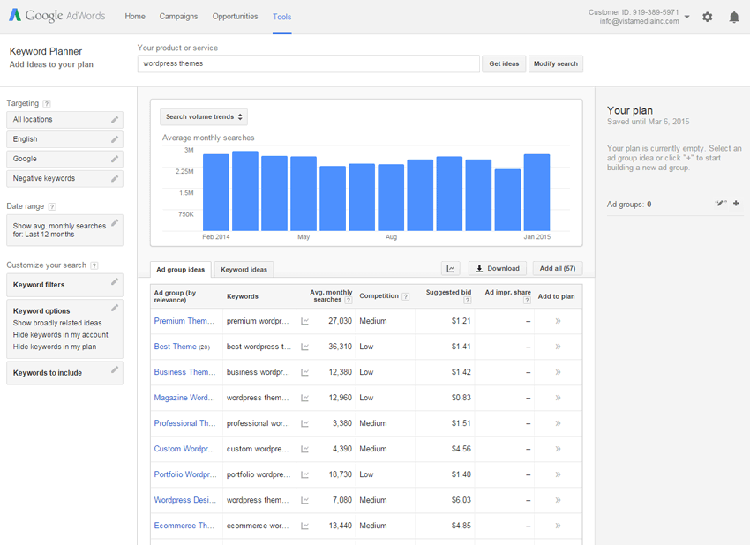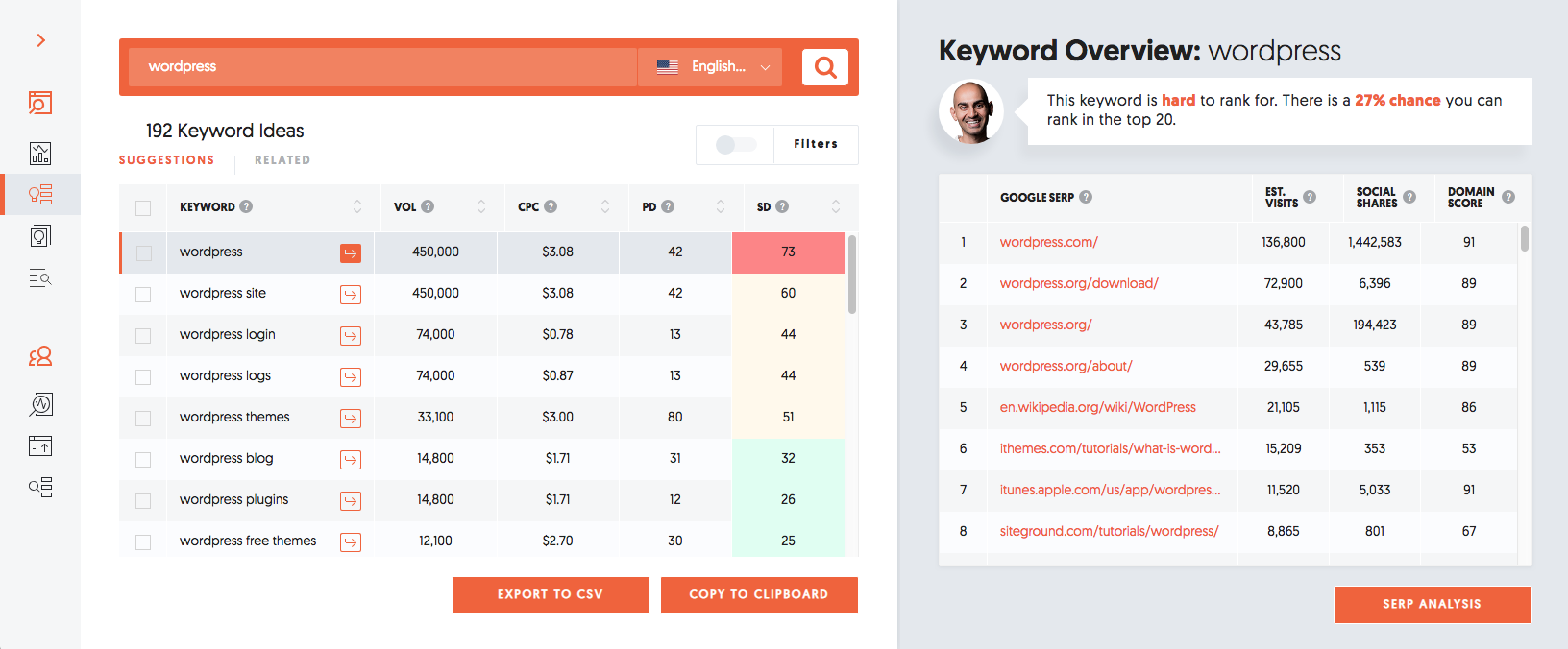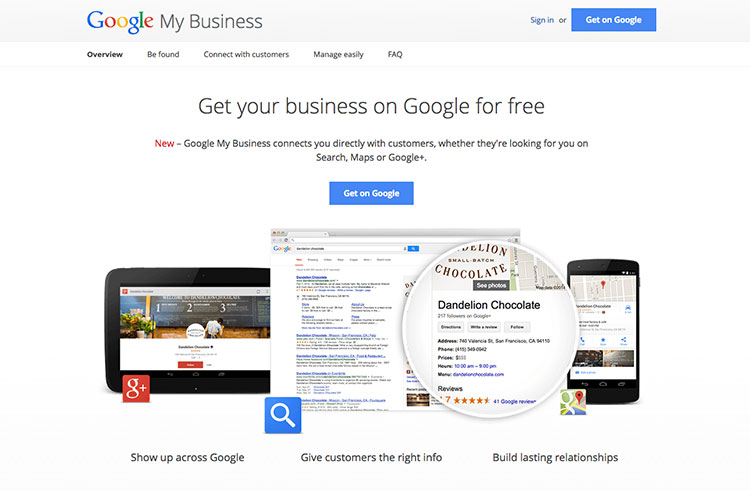WordPress SEO Best Practices for 2024

The SEO landscape of the future is a volatile place. And do you know why? The powers that be (namely Google) are doing their best to build a better, faster and more secure web for all of us. Of course, they stand to benefit ten times more, but who cares? Well, you should which is why WordPress SEO best practices are so important.
If you own a WordPress site and want to rank highly (or well) for your key terms then good SEO is paramount. You see, to offer an enhanced search experience (and make billions of dollars in profits at some future date), Google must keep updating their search algorithms, much to the chagrin of SEO experts (yes, that does include you).
In the not so distant past, one could easily score top positions on Google SERPs (Search Engine Result Pages) by literally “pumping” keywords into content. Aka “keyword stuffing” – and that’s how SEO experts were doing it left, right and center.
Then Google updated, and updated some more, and keyword stuffing was swiftly shown the door. Without a doubt many blogs saw their rankings plummet. But a new era in SEO was born: the era of relevant and valuable content, alt tags, title attributes and what not.
Still, Google kept the algorithm updates coming, and while they won’t disclose all the detailed info that would definitely help your SEO campaign there is still hope for you to secure a top spot if you put in the effort.
The WordPress SEO best practices outlined in this post are sure to put you on track to create better content that ranks. So get ready to have fun and build a formidable SEO profile that will withstand the next algorithm shakeup.
- Carry Out Astute Keyword Research
- Focus on Content – the King of SEO
- Use SEO-Ready WordPress Themes and Plugins
- SEO-Friendly URLs
- Mobile-Friendly Website
- Social Media Signals
- Beat Your Competition
- Improve Page Load Speeds
- HTTPS as a Ranking Signal
- Local SEO
- Submit Your Site to Search Engines
- Sitemaps
- Get Some Juice (backlinks)
- WordPress SEO Tools and Resources
What Are The Best Practices for WordPress SEO?
Before we get into WordPress SEO best practices, allow me to mention a few things you might want to know about as a beginner.
Firstly, SEO involves two strategies namely on-page and off-page optimization. On-page optimization consists of all SEO related activities that you can accomplish on your site (or web pages). This includes content creation, adding keywords and optimizing title and meta tags. Off-page optimization is every other SEO action that involves third party websites such as social media, blog commenting, guest blogging, directory submissions, link building, social bookmarking and even advertising.
Secondly, we have white and black hat SEO. White hat is an SEO strategy that adheres to SEO rules established by Google and other search engines. Think of it as wholesome, ethical SEO. On the other hand, black hat SEO involves gaming search engines, or even competitors, which will only land you in hot soup. You should endeavor to build a white hat SEO strategy, and never once think about manipulating search engines using black hat techniques. In simpler terms, don’t try dirty tricks that are not contained in, say, this resourceful SEO Guidebook by Google.
With that out of the way, let us move on to WordPress SEO best practices you need to keep in mind and implement as you improve your WordPress SEO.
1. Carry Out Astute Keyword Research
Keyword stuffing used to work as an SEO technique in the days gone, but today Google frowns upon this practice. At the same time, the keyword as a ranking factor is not dead. Google and other search engines still rely on keywords to rank websites, meaning your SEO strategy should be guided by astute research.

Would you like to rank highly in Google for the phrase ‘WordPress themes’ or ‘WordPress plugins’? A tool such as Google AdWords Keyword Planner can help you to determine the competitiveness of your terms as well as derive keyword alternatives to use in your content. You can also use Google Analytics to check the keywords people are using to find your website. Your WordPress site statistics is another a source of keyword ideas.
For each of your keyword, endeavor to derive ten (10) alternatives. For instance, if your choice keyword or phrase is ‘WordPress themes’, you can derive alternatives such as ‘responsive WordPress themes’, ‘multi-purpose WordPress themes’, ‘premium WordPress themes’ and so on.

Need some help deciding on your keywords? Try Ubersuggest. This free tool from one of the world’s top SEO experts helps with related keyword ideas as well as provides helpful insights. If you click on the Keyword Ideas link you’ll see an estimated success rate for your keyword target as well as the current ranking competition. In the screenshot above you can see that ranking for the keyword “WordPress” is tough – especially since the current top sites for that term have great domain scores and solid social presence.
While doing your research, think longtail keywords. Stretch your keyphrase to a maximum of four (4) words, and you will have a higher chance of ranking well for your single-word keywords. For example, ‘WordPress themes’ is more competitive than ‘responsive multi-purpose WordPress themes’, meaning it will be harder to rank first for the former as opposed to the latter.
Sprinkle a few of these keywords within your content and you should start enjoying better rankings in about a month or so. Yeah, that’s right, SEO takes time – you won’t enjoy the results overnight. Any SEO “expert” who promises you the golden numero uno position on Google in a “couple of days” is taking you for a ride. SEO is a long-term and continuous process that lasts throughout the life of your website.
Back to sprinkling keywords in your content, we will talk about keyword density as a part of WordPress SEO best practices in a moment so don’t sweat it.
2. Focus on Content – the King of SEO
Content still is. Unique, valuable and relevant content that is. Apart from being the greatest of all SEO ranking signals, high quality content is, foremost, the lifeblood of your website.
A website without content is, well, not a website. Along the same lines, a website with poor quality content is like a blunt knife – it might do the job but you must exert more force. A website with stale content is dead both to search engines and human visitors. This I understand firsthand because, severally, I went long periods without posting on my own blog. The results? Lower user engagement and lost SEO rankings.
We just mentioned your content needs to be unique, valuable and relevant. What does this mean? First off, your content should be unique because search engines, more so Google, do not entertain plagiarism – or duplicate content. Your content should bring something fresh to the table – it should be unique if you want to rank well.
Without a doubt, you can pull out quotes from anywhere on the internet, but copy-pasting an entire page will only land you in trouble.
In other words, eliminate duplicate content on your site including URLs. Google does not see http://yoursite.com and http://www.yoursite.com as the same entity, meaning your rankings are split between the two URLs. You might even get penalized for the same.
I faced this challenge once, and resolved it easily. If you know your way around your server and WordPress folders, adding the following code to your .htaccess file should do the trick:
RewriteEngine On
RewriteCond %{HTTP_HOST} ^example.com [nocase,OR] RewriteCond %{HTTP_HOST} ^www.example.com [nocase] RewriteRule ^(.*) http://www.example.com/$1 [last,redirect=301]
Replace example.com with your domain name. The above code will redirect all yoursite.com and www.yoursite.com requests to http://www.yoursite.com, meaning search engines won’t be confused. You can also use a technique known as URL canonicalization as explained by Matt Cutts.
The unique content you create should be valuable, not just fluff or filler content meant to trick search engine spiders. Wait…what spiders? Google and other search engines use special type of software (scripts) known as crawlers or spiders to find and index your content.
But since our objective is to rank higher and higher in Google (and Bing and Yahoo!), how do we create unique and valuable content that’s not meant to attract or “trick” the now-smarter search engine spiders? The simple answer is you should never look into creating content for search engines. Instead, create content for your human readers, and search engines will follow. Trhrefy your best to provide valuable content because…
Search engines are rapidly developing the intelligence to discern between websites that provide value from sites that create the illusion of value. – James McDonald, Lyons Consulting Group.
Don’t get me wrong. You shouldn’t create valuable content because search engines are getting smarter. Create valuable content to help your real human visitors. It’s what great brands do.
Speaking of writing for human visitors first (and search engines second), your content should be relevant to your target audience. This is one of the reasons why you need to define your target audience from the word go. Create unique and valuable web content that’s relevant to your target audience. Write in their language, use terminology they understand and if you’ve done your keyword research well, you shouldn’t have a problem adding keywords to your content.
If your content is well written and valuable, your readers will share the same with family and friends, scoring you brand mentions on the web, which if you’re wondering, is yet another SEO ranking signal.
On adding keywords to your content, you should do it naturally – don’t force keywords into your content. This is why having ten (10) alternative keywords is so important. If one keyword does not fit, you have nine (9) other alternatives 🙂
But this makes SEO sound rigid, when on the contrary, its very flexible. After I lost my rankings thanks to keyword stuffing, I devised a new approach that has never failed to yield the desired results since.

I start off with some keyword research, deriving several alternatives to my primary keyword. But instead of writing content first and adding keywords later, I do both at the same time. How? I commit my primary keyword and a few alternatives to memory, and then write away. Provided you’ve researched your keywords as well as your content, the former will fall right into the latter. The keywords will fit right in. I don’t think about the keywords but when I’m done writing, the post is SEO ready. Of course, this is my own personal technique and might not work in your case. And I have perfected the technique over time, so feel free to devise your own technique – just make sure your keywords appear naturally in your content.
How many times should you mention your keyword within your content to make it ready for search engines? 2.5% is the standard keyword density but you can take that to about 4% at any given time. This means if your post is 2000 words long, your primary keyword (phrase) should appear fifty (50) times. Naturally.
Other than that, add your keyword to post/page titles, which quickly communicates to search engines (as well as human visitors) what the post/page is all about. As an illustration, ‘WordPress SEO’ appears prominently in the the title of this post, which tells you this post has to do with WordPress and SEO. If your post/page has headings and/or subheadings, add keywords to these as well. Just keep things natural and you will be okay.
On creating engaging and shareable content, don’t forget to mix it up by adding media such as videos, images, presentations, infographics, podcasts etc. These improve user engagement tenfold and add value to your content, both of which are important to SEO.
Google loves WordPress blogs – regularly updated blogs – so keep your blog section fresh. Make an attempt to update your static web content e.g. about and product pages as well. While it might take some webmasters the coming back of the Messiah to update the content of their static pages, the blog feature of WordPress allows you to feed your website with fresh content on a regular basis. Make use of the blog!
Posting once or twice per week should be enough to earn a decent spot in SERPs in about two months. You can post daily as well, just make sure you don’t compromise quality in the name of quantity, since the latter does not count as much as the former in the new world of SEO.
When creating your posts, add SEO-friendly tags and categorize the posts accordingly. If you use SEO plugins such as Yoast SEO, you get fields to add meta description, SEO title, and focus keyword to your post. Utilize these features to SEO-up your post. While optimizing your content, the Yoast SEO plugin also helps you to determine the SEO score of your article long before you hit the publish button.
Add meta titles, keywords and descriptions to your other pages, not just posts. This kind of information goes in the <head> section of your website, where it’s easily picked up by search engine spiders for indexing.
Note: Meta keywords, descriptions and titles do not discount the place and value of adding keywords to your content.
Write unique and valuable (shareable) content that’s relevant to your target audience.
And as a reminder, never write for search engines; write instead for your human readers – talk to them via your content as if they were standing in front of you. Would you drop unnatural keywords then? I doubt.
On-page SEO involves both creative and technical expertise. As a marketer, you need to create fantastic content for your website that your audience will love. And you want to ensure that your website helps Google (and human users) find and share that content easily. – Justin Deaville, managing director atReceptional.
Image and Video SEO
Before we move on to the next section, I would like to mention a few things about the images and videos you’ll use in your content to reinforce your SEO.
To begin with, adding images and videos to your content is one among SEO best practices that many rarely implement. And that’s just sad because optimized images will bring you great traffic from Google Images and the likes. Videos can garner you traffic, links, mentions and more from sites such as YouTube, Vimeo, Tumblr and more.
We’ve talked about optimizing images for WordPress before, but how do you optimize images for search engines? This is the easiest part. To begin with, you should optimize your images for fast loading. Don’t use heavy images that will only slow down your site. If you need a 650 x 300 featured image for your next post, upload one that’s 650 x 300 and not a pixel more.
Secondly, make sure your images are relevant to your content. Apart from gaining you better rankings, images should enhance your content – their original purpose.
Thirdly, give your images appropriate file names. Is the image about WordPress SEO? Name the image as such – don’t leave your images looking like IMAGE001_2021.jpg. Why? It’s bad for user experience and SEO since search engines don’t see images as human readers do. On top of that, try to squeeze your keyword in the image file name.
Speaking of search engines “seeing” your images, you have to add the ALT tag to your images to make it easier for the spiders. The ALT text represents alternate (alternative) text, the text that’s shown should the image fail to load for whatever reason. The ALT tag has another purpose. It was meant to help screen readers “see” your images. Screen readers are used by visually challenged people to consume content on your site. Search engines spiders use the info contained in the ALT tag to “see” your images as well.
Optimizing images in WordPress is slight work. Just click “Add Media” in your post editor, and choose your image on the screen that appears. Once the image is selected, you’ll notice areas on the right side that allow you to add the title, caption, alt and description. Just focus on the “alt” field, but feel free to fill out the other details if you have the time.
ALT text is great for SEO, makes for valid HTML when utilized, and helps visually challenged readers assimilate your content in its entirety. As such, make the ALT text descriptive (and relevant to the image and post) but short.
3. Use SEO-Ready WordPress Themes and Plugins

WordPress is so popular today because you can have a website up and running in the time it takes to down a hot mug of coffee. Thanks to WordPress themes and plugins, anybody (and I mean anybody) can build a professional website in no time. But that’s only true if you pick the perfect theme and plugins. In terms of WordPress SEO the themes and plugins you pick should be SEO-friendly from the get go.
Obviously, you can start with any theme and any set of plugins, but SEO-ready ones give you the head-start you need to take Google by storm. What do you need to look out for when choosing your WordPress and plugins?
Firstly, your choice should utilize clean and valid HTML. If the structure of your theme is all over the place, you are going to have problems not only with your WordPress SEO, but also with your design. Look for themes that utilize the canonical URL meta tag. A canonical URL meta what? This is just a fancy term for a certain type of meta tag that stores the top URL of your page. If it’s your homepage, the canonical URL meta tag will store your domain name. If it’s a post, the tag will store the URL of the post.
The theme should also support the correct usage of headings (h1, h2, h3…h6) and title tags. You should also go after WordPress themes that integrate the Open Graph meta tag to enhance social media sharing.
How do you determine all these factors? You can read the developer’s promotional materials, contact them directly or inspect the demo. What to look for? Right click on the demo and choose “View Page Source” or something equivalent. You need to focus on the first part of the code – the area between <head> and </head> tags. Find <meta> tags e.g. <meta name=”description” content=”Some description” /> or <meta property=”og:description” content=”Some description” />.
Don’t mind if your favorite theme does not have these areas though. You can always add them tags later on using SEO plugins or manually by editing the code. I would go for plugins any day. A theme that does not support page titles and headings is a complete no-no, you know, if such a theme exists in the first place.
4. SEO-Friendly URLs
Also known as Pretty Permalinks in WordPress, SEO-friendly URLs are a key component of WordPress SEO best practices as well as user experience. For instance, which URL is easier to remember:
- https://www.yoursite.com/article300152
- https://www.yoursite.com/?p=3424
- https://www.yoursite.com/wordpress-seo
Of the three, which URL do you think will “excite” search engine spiders? The third URL on the list is the absolute winner. It’s disheartening to see webmasters using URLs such as http://www.example.com/?p=123 when WordPress makes it so easy to create SEO-friendly URLs (and where there are great plugins like Pretty Link that you can use to create easy to remember external links).
Just go to Settings > Permalinks and select Post Name or Month and Name. Do this long before adding content to your blog to avoid broken links. If you had no idea, broken links are bad business for SEO, and if you’d like to learn more, Elegant Themes published a great post on why you should never use the default permalinks setting.
5. Mobile-Friendly Website
Perhaps a bug bit me because every time I’m on a great website, I always resize my browser to check if the site is responsive. The same bug must have bit someone at Google as well, because if you haven’t noticed, they’ve already introduced mobile friendly labels in search results.
What does that mean? If your website is not mobile friendly, you will enjoy worse rankings than mobile friendly websites. Your readers will also know your site is not mobile friendly long before they get to your homepage, which reduces your click-though rate.
Google recommends adopting responsive web design (RWD) – a web design technique that allows developers to build website following a mobile-first approach. Websites built around RWD techniques will always look and function great on all devices.
If RWD won’t work for your business model, which is unlikely, you can go for a hybrid mobile solution. Just make sure mobile visitors get to your mobile site, and there are no content (or URL) conflicts that will end up messing your WordPress SEO. This Google SEO Guidebook has an entire section explaining how to go about it.
Otherwise, just pick a responsive WordPress theme and plugins from the start. Don’t know where to start? Total Responsive Multipurpose WordPress theme is a great choice for many an entrepreneur like you.
6. Social Media Signals
The growth of social media in recent years has created a new and profitable channel for WordPress SEO. Even without struggling, you can see the great traffic potential of social media. It also gives you the chance to build a community around your brand and/or products.
Search engines are using brand and content mentions to determine ranking. The reason behind this approach is simple: If more people like, retweet, pin, stumble etc your content, it must be valuable and vice versa.
Be careful with social media though. You want to open up two-way communication as opposed to talking at your prospects. You need people to engage with your brand to “…improve the pass-along value and online word of mouth.”
Use social media to create your own audience, and work hard to drive conversation and user engagement. The more the mentions, the better.
7. Beat Your Competition
When you enter your keyword in Google, the first ten (10) websites that appear are your most fierce competitors. To clinch that elusive first position, you must beat them all.
Do you recall that wise saying that goes like keep your friends close and your enemies closer? Take time to study your competition. Get answers to questions such as: Why does number one beat me? What do they do different? Are they implementing white hat SEO techniques that I might be missing?
Perhaps they aren’t as good as you’d imagine – maybe their content is stale for instance. This could be your window of opportunity to get the ranking you deserve. Study the competition and beat them at their own game. A little competitiveness is awesome. Plus if the reward is better rankings, more traffic and ultimately better conversions, I’m up for the challenge any day. Are you?
8. Improve Page Load Speeds
If your website takes a millennium to load, you’re losing prospects left, right and center. Further, you’re flushing SEO points down the drain, and they’re hard to come by.
Slow pages lead to higher bounce rates, loss of traffic and customer trust, so decrease your page load time already. The post I’ve linked in the foregoing statement will show you everything you need to do to improve the speed of your WordPress site. If you wanted to do a quick site speed check on your site to see how fast it is you can use the Google Page Insights tool to check your website and see what sort of recommendations Google has for you to increase your site speed (it’s important to note that page insights is focused on many micro-optimizations which sometimes don’t make a lot of sense for your site to do or it won’t affect your site as much as simply getting a better hosting plan, the most important factor is your actual loading time, so you should compare your loading time with your top competitors and make sure your site is faster).
9. HTTPS as a Ranking Signal
In the introduction, we mentioned that Google is doing everything to build a better, faster and secure web for everybody. By upgrading their search algorithms, they make the search experience better. With their versatile Knowledge Graph, the search engine has grown faster. And now they would like every webmaster to adopt HTTPS to improve the security of web properties.
While HTTPS is not a major ranking signal, Google is still conducting tests and might decide to strengthen it in the near future. Just the other day, they published an article on securing your site with HTTPS. The post outlines the importance of site security, best practices when setting up HTTPS and how to set up HTTPS on your HTTP site. You should be in good hands.
10. Local SEO
Local SEO is just like customary (organic) SEO. The only difference is you have to go a step further with your local SEO campaign. For instance, don’t forget to add your city/state in title tags, headings, content, URL, and alt text. Additionally, don’t forget to claim a Google My Business page for your outfit. It’s free, so don’t wait.

You can learn more about local SEO at Moz or Search Engine Land.
11. Submit Your Site to Search Engines
As we’ve already established, search engine spiders comb the web looking for content. Then they index the content according to the various SEO ranking signals. Submitting your site to search engines manually improves your chances of getting better ranking faster. Submitting your site manually also reduces your chances of being labelled as spam.
The best part is the process is quick and easy. To submit your site to Google, you can use the Add URL page or Webmasters Tools. To submit your site to Yahoo! and Bing, feel free to use Bing’s Site Submission Page. Don’t be alarmed, Yahoo! search is powered by the Bing Search Engine. Meaning you will show up in Yahoo’s search results when you submit your site to Bing.
12. Sitemaps
A sitemap is literally a map of your site – showing all the pages, categories and more. You should create a sitemap, for both human visitors and search engines. Publish the sitemap on your site, so readers can find your content when lost. You can even link to your sitemap from your 404 error page. You can create your sitemap manually or use a plugin as Google XML Sitemaps.
While search engines can locate the sitemap on your site, you should submit it via Google Webmaster Tools to improve your chances. It’s a smart thing to do, especially with a new website.
13. Get Some Juice (backlinks)
No matter what people say, link building is an important part of WordPress SEO best practices. This is how link building works. You publish high quality content and site A links to you in the process sharing link juice with you. If it’s an authoritative website, Google labels you with a higher link profile and your ranking goes up. Then if you go ahead and link to site B, you share the link juice as well. However, if site B is completely out of your niche (spammy) or contains low quality content, you will only tarnish your rankings and probably get a penalty.
Accept links only from high-quality websites in your niche or from authoritative websites. Link only to high quality websites (content) that adds value to your site.
The future of SEO will be the importance of the link quality. The site that links has to be socially active and have a usable and interaction user base . The importance of the link will be the value of the site which attributes to the social side of the internet. – Nick Anderson, founder of Hostoople.
Learn to build links naturally. If you buy links, Google will find out and punish you. You should endeavor to create awesome content that earns links naturally. Link farming (sowing many links at the same time or within a short period) will only land you in trouble.
That aside, use natural anchor text in your links. Shun the likes of “Click here” and use text that provides meaning instead. Need an example? Just look at the linking pattern we’ve utilized throughout our blog. Finally, if you’d like to link to a website but don’t want to share the link juice, you can use rel=”nofollow” attribute in your links.
Example: <a href=”http://www.somesite.com” rel=”nofollow” title=”Some descriptive title”>Meaningful anchor text</a>
WordPress SEO Tools and Resources
Now that we have WordPress SEO best practices out of the way, what are some of the tools you need to push WordPress SEO forward?
Here’s a quick list:
- Yoast SEO – A great WordPress SEO plugin that helps you to add meta descriptions, keywords and titles to your content among other things
- Social Media Plugins for social media promotion
- Google XML Sitemaps
- How to Decrease WordPress Page Load Time
- How to Rank Higher in Search Engines
- 5 Essential SEO Techniques To Master
At the end of the day…
…keep in mind that WordPress SEO takes time. After implementing these WordPress SEO best practices, you need to allow enough time to see the results. Too bad we don’t have set-and-leave SEO solution yet. Additionally, you have to keep updating your WordPress SEO strategy according to industry-wide changes. Don’t forget to follow the established SEO guidelines to avoid penalties. To sum it up, create high quality content and promote your site like a mad man.
It’s our hope that we’ve given you enough fodder; the ball is now in your court. Did we leave out important WordPress SEO best practices? Which WordPress SEO best practices do you use? Please share with us in the comments. All the best, and may God bless the work of your hands!




Very helpful, both for developers and their clients.
Thank you for passing by John!
Good article
I have read the entire post and it took me around 50 minutes to read and understand it thoroughly. I must say well researched, and very useful information submitted. After all we work for Google I would say and we need to change our seo strategies that we are following right now. Very useful.
Thank you for the compliment and sharing your opinion 🙂
Very concise and easy to understand and follow. Thank you for the effort.
Thank you for passing by Rob Sanders. I’m honored you found this post useful.
Great article, Freddy. One of the most comprehensive on the hot topic of SEO, I must say.
Thanks a lot for sharing your valuable insights with us. 🙂
Regards
Anshul Sukhwal
You’re welcome Anshul Sukhwal!
Very useful, thank you. I’m working through this list.
Hey Simon. Glad you can now fix your SEO. All the best getting the best rankings in search engines 🙂
Awesome article, man. SEO definitely requires a little bit of work beyond keywords.
That’s right Henry, that’s so very true. To survive in the SEO landscape of today and tomorrow, you need more than just mere keywords. You need to provide users with an experience like no other on your site, and as readers flock your site, so shall search engines. It’s readers first, search engines second.
Thank you very much, I like
I like that you passed by and made time to share with us 🙂
That’s cool Simon. That’s the plan man, make changes and you should notice better SEO rankings in no time whatsoever 🙂
useful in formation.
Glad you enjoyed the post Wilmavespa! Pass by again for more awesome tips 🙂
Thanks a lot for sharing your valuable insights with us. SEO definitely requires a little bit of work beyond keywords.
Great point, I like the example you’ve used to illustrate it. good stuff. Nice content. I enjoyed reading this thoroughly. you have done a great job on this blog.I am impressed with your work.
You’re far too kind! Thanks for the many compliments, we take so much pride in our articles.
Finally someone who knows what they are talking about and willing to share it. I have been tossed under the bus ever since Penguin update and haven’t found any good quality information on SEO in 2015 since. I am going to use this as a guide and am bookmarking it. Thanks for posting this.
I’m humbled, so humbled you found this guide useful. Sad to hear you were tossed under the bus. That sucks, but we hope this guide will help you recover your rankings. All the best improving your SEO!
Really thorough & interesting to boot. Thank you. Lots to consider here. Appreciated immensely.
Thank you for passing by thehospitalitywidow. We value your input, and thanks for the compliment!
Really awesome thinking,,,yeah remarkable
Hey SandyBrown. Yours is a remarkable comment. Thanks for the vote of confidence. Greatly appreciated 🙂
Really a good article to understand the best seo tips for WordPress in 2015. I read this very carefully and implemented on my website.
Very well explained about Word Press SEO. Thanks you for sharing this nice article.
We’re glad you found the post useful 🙂
Thanks you for sharing this nice article.
Thank you for taking the time to read and share your opinion. Much appreciated!
Really nice tips. It will help to promote our website in better way. Thanks guys for sharing!
You’re welcome Navneet! Wish you all the best getting your site to more readers. Cheers!
Hi there, I try to add this code to my htaccess file but it doesn’t work. my site starts to crash and say there’s too much redirects. can you please help? my SEO has decreased dramatically since Google changed the formula. Thanks!
Sorry your code didn’t go through the comment…I am not an .htaccess export though so I won’t be able to help much with that 🙁
Thanks you for sharing this nice article.
Thank you Cyai for passing by and that much appreciated compliment. Glad you found our post useful 🙂
Nice Collection of WordPress SEO Plugins, All the Plugins are required and useful.
Thank you Panchal for contributing! Your input is always welcome 🙂
Great blog !well explain of WordPress use in SEO and also using WordPress make easy content adding in SEO.
Hey Karen! Thanks for passing by. It’s true, WordPress makes creating content and optimizing SEO incredibly easy.
HI…
Nice SEO tips .
Hope i can improve my website with this tips.
thanks for sharing..
Hey Priya, thank you for passing by, and taking the time to read. You should be able to improve your SEO, just remember SEO is a continuous process that goes on as long as your site remains live. Let us know how that goes 🙂
What a fantastic article! So helpful and with the relevant tools and resources included.
Thank you very much for taking the time to write this so well and make SEO accessible and a little less scary for those of us who are representing small businesses.
Thank you Maddie for the great comment! We take so much pride in our work, and are thoroughly honored when you find our content useful (y)
Hi Freddy,
Really it’s not only large post but also it has so much inform which can bring a success for any writer. It is really useful. While I search in Google about seo friendly content then I discover your awesome post. After that when I practically touch your post then I stunned really what a post ! It’s possible by a blogger ! But really learned we need spend so much time for writing a good article. Thanks a lot Freddy for sharing a great and advantage post for us.
What an inspirational comment Jewel Rahman! Thank you, thank you, thank you – you’re far too kind 🙂
Thanks for the writing this really informative post. I am glad to reach on your post.
We’re glad you took the time to read and comment. Thank you!
Excellent post. This is what www needs. Thanks for sharing
Very well and detailed article about the basic WordPress SEO tips. I think now a days Accelerated Mobile Pages is also helping the website more mobile friendly. I have to follow the instruction’s and SEO tips on my blog.
hi very powerful information thanks , it is very important to write content on our own and url structure plays a important role in seo, Google algorithms are now mainly based on content and links what we posting, thanks
Very useful, thank you. I’m working through this list.
you make blogging look easy. The overall look of your web site is fantastic, as well as the content!
Awww shucks, you’re making us blush 🙂 Thank you for the compliments!
Nice info 🙂
Great, One of the most comprehensive topic on SEO. WordPress is the best tool for the SEO practice. Thanks for sharing the knowledge with us…
Very informative and helped me with my blog. thanx for sharing.
Thanks for your Great Post. I will consider all these things for my new blog. Thanks Again!
Hello,
You provide this information very cleverly. Anyone can understand very easily. Thanks for this helpful information.
Regards,
Karishma
Awesome post thank you for sharing
Thanks for the tips but I’m really struggling with the building links part. Do you have any further tips on how to get more people to link to your site besides sending cold emails to people you find online? Thanks!
One of the easiest ways to build your own natural links is to be active on forums (like reddit, github, Envato, etc) and blogs relevant to your industry. Answer questions in forums (linking to your own site if relevant) and write thoughtful comments on blogs that allow links in their comments. It’s time consuming for sure, but it’s how we started 🙂
Content is the king anywhere. I agree with every point. Thanks for sharing 🙂
Great and an informative article!
Thanks Freddy, thanks for sharing such helpful SEO tips! I’ll certainly be using these to get my WordPress site ranking in Google!
This is the exact information I had been searching for. Thanks for sharing quick and easy SEO info with clear points I was able to follow. Keep posting.
That’s great to hear! We do our best to keep this SEO tips list updated – so be sure to check back for new pointers, or to share anything that’s worked for you.
Freddy, thanks for the article. You have provided better instruction here then the combination of the last 20 articles I looked at.
The importance of content has dropped very low
I disagree – I think content is still king, but user engagement is queen 🙂 And that’s just the beginning – SEO is made up of so many equally important layers!
Great and an informative article! Thanks so much for the easy SEO tips – I will get started using them today!
This is really nice and a very wonderful article. With these i can successfully do my site SEO successfully.
Thanks for sharing, it was indeed helpful.
Have a great day!
Thanks for sharing such useful information…keep posting.
I don’t understand why everyone uses Yoast. Well I have to say im pretty new into WordPress but i found another plugin that has even a fullpage scan. (Rank Math SEO) Also i’m so happy with their support they contact you directly from the beginning over e-mail and ask if everything is okay.
But okay enough of this 😀 It’s great to see another SEO article!
For many older sites, Yoast was the first (and pretty much only) option for WordPress SEO. But there are definitely some great Yoast alternatives available now (RankMath being one of them)!
I understand the need for unique and engaging content, but you just saved a blog from duplicate content penalties.
Thanks for the code to update the .htaccess file, very helpful.
I am really impressed with your collection of tips – very well written
Great article.. thank you. Is having an author tag/time stamp on blogs (and also pages) still something that should be implemented?
Yes. It’s still recommended for SEO but also it’s really good for your user experience so your visitors know whether your content is still applicable (it’s recommended to display both published date and last updated date or just the last updated date). This way if an article hasn’t been updated for many years the reader may take it with a grain of salt.
Nice article, thank you so much
Hi,thank you for this powerful article! But I disagree whit social signals – my own suggestion is that try to increase comments in your website. This is more important point for google yet in 2020! Thank you!
Thank you for putting together such a comprehensive list.
Using SEO friendly URLs are very much helpful in rank improvement. Websites designed in WordPress make all the aspects user friendly.
Great article!
I am slowly learning all of the above to be very true.
This is awesome! Thank you so much for the thorough set of instructions. I was wondering from the number of post but i can’t get satisfaction information from there. But when I was reading your post my process is ending. I was being too much happy with your post information.
Our SEO team uses SEO friendly Images, SEO smart link WordPress plugin, All in One SEO WordPress Plugin, Keyword density checker and many more. They claim WP Social SEO booster to be their all time favorite.
I love the design of your website. I am viewing from mobile what are theme are you using that is so awesome beautiful. And do you have templates of your website. Its lovely.
Thanks so much – but we created a custom design just for our website. But you could certainly build something similar with a page builder!
Hey there, agreed content is the lifeblood of a website. Content should be unique because search engines, more so Google, do not entertain plagiarism or duplicate content. If you want to rank well the content should be fresh to the table. Thank you!
Thanks for such a great review. I am just learning SEO. Therefore, I pay close attention to this material. I found your blog very useful, so I’ll add it to my favorites!
Very good your article, Freddy, thanks for sharing.
Great Article with easy SEO tips. Thanks
Super helpful for a newbie to SEO. Thank you!
Thank you for sharing this useful information! I look forward to more new posts about WordPress SEO from you guys!
Nice article and thank you for putting time into this. These best practices are valuable information for WordPress SEO.
Oh, thanks for the information and analysis on WordPress SEO. This is a really high priced article for both beginners and experts. Today I wanted to learn more about WordPress SEO and I came across this fantastic resource. Thank you very much for all of your hard work and for writing such an excellent piece. But I’d like to make sure that anyone has the expertise, feedback, or even suggestions on the topic. Once Again thank you so much.
very informative and useful for WordPress SEO. thank you very much for sharing this.
I am genuinely happy to read this website posts which carries lots of helpful seo tools and data, thanks for providing such information.
While reading your post. I got so many knowledgeable things about wordpress seo. Thanks for sharing. Keep sharing. We always looking for your coming article.
You’ve provided some excellent information. I was simply looking for WordPress SEO tips when I came across your website and discovered some good information. Also, wpwebelite is a great resource. They’ve also created really well-informed and to-the-point material that will be more beneficial to both you and your visitors.
Good post! We will be linking to this particularly great post on our site. Keep up the great writing
Nice post. I learn something totally new about SEO that is challenging on websites
Hi, Freddy!
First of all, great article, but you did not mention a good hosting provider. Choosing the right hosting provider is also essential for your WordPress SEO.
This post has many excellent tips and good information about SEO for beginners. I like this post and will put it to use. Thanks for sharing this article.